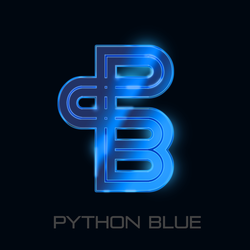First of all, Happy Holidays to everyone, and hope everyone has a happy new year and decade!
One way my Christmas proved interesting was learning that Korg finally made another VST clone of another of their ROMplers: the Korg Triton series. For me, they do hold a place: my first ever professional-quality synthesizer was a Triton Extreme, which I had received in light of my interest in its predecessor (the Trinity series). Needless to say, I was excited to see this in a VST form.
The Triton VST seems based on the Triton Extreme for the most part in that it includes not only the standard programs and combinations, but also those of its eight expansion cards, which means quite a fair number of waveforms alone to work with! The sounds it does come with are pretty impressive as well, even if some are a bit dated for today's standards, and speaking as a past hardware owner, I failed to notice any major sonic differences!
The interface seems fairly straightforward to use, especially relative to the hardware. The original Triton series made use of touch screens, a tradition that was started with the Trinity, so it felt a little strange to me not focusing on a pixellated display to make my edits to sounds, but I'm not complaining there.
Sadly, that's not to say I don't have any criticisms. Granted, most of the editing limits, such as no choice for multiple filters per oscillator like even the Trinity, were the case in the original hardware, except for one software limitation that I honestly was hoping for: sampling. At least some of the Triton models, including the Extreme, were capable of some small scale sampling, with a whole bank of blank sounds meant specifically for them. Unfortunately, both the sampling and the sample-based patch bank are nonexistant in this VST, which I imagine is especially a blow for Trinity fans like myself since not all of the Trinity ROM waveforms were included in the Triton (though a small number of those reappeared in their later M3). I sincerely hope Korg addresses this later, especially since I imagine it will help prolong the life of this particular VST being able to run your own samples through its impressive effect processing (much better pitch-shifting than the RolandCloud VST's, for instance).
Still, overall good job from Korg, and I look forward to using it occassionally in my future work! For more information and to buy, feel free to go to the below link:
https://www.korg.com/us/products/software/korg_collection/triton.php
One way my Christmas proved interesting was learning that Korg finally made another VST clone of another of their ROMplers: the Korg Triton series. For me, they do hold a place: my first ever professional-quality synthesizer was a Triton Extreme, which I had received in light of my interest in its predecessor (the Trinity series). Needless to say, I was excited to see this in a VST form.
The Triton VST seems based on the Triton Extreme for the most part in that it includes not only the standard programs and combinations, but also those of its eight expansion cards, which means quite a fair number of waveforms alone to work with! The sounds it does come with are pretty impressive as well, even if some are a bit dated for today's standards, and speaking as a past hardware owner, I failed to notice any major sonic differences!
The interface seems fairly straightforward to use, especially relative to the hardware. The original Triton series made use of touch screens, a tradition that was started with the Trinity, so it felt a little strange to me not focusing on a pixellated display to make my edits to sounds, but I'm not complaining there.
Sadly, that's not to say I don't have any criticisms. Granted, most of the editing limits, such as no choice for multiple filters per oscillator like even the Trinity, were the case in the original hardware, except for one software limitation that I honestly was hoping for: sampling. At least some of the Triton models, including the Extreme, were capable of some small scale sampling, with a whole bank of blank sounds meant specifically for them. Unfortunately, both the sampling and the sample-based patch bank are nonexistant in this VST, which I imagine is especially a blow for Trinity fans like myself since not all of the Trinity ROM waveforms were included in the Triton (though a small number of those reappeared in their later M3). I sincerely hope Korg addresses this later, especially since I imagine it will help prolong the life of this particular VST being able to run your own samples through its impressive effect processing (much better pitch-shifting than the RolandCloud VST's, for instance).
Still, overall good job from Korg, and I look forward to using it occassionally in my future work! For more information and to buy, feel free to go to the below link:
https://www.korg.com/us/products/software/korg_collection/triton.php


 RSS Feed
RSS Feed